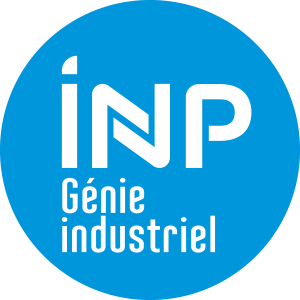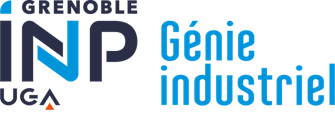Number of hours
- Lectures 24.0
- Projects -
- Tutorials 24.0
- Internship -
- Laboratory works -
- Written tests -
ECTS
ECTS 6.0
Goal(s)
This course aims at giving a comprehensive presentation of the latest methods and developments in design management and innovation. The main tools and methods will be presented and discussed. Case studies on new product developments will be analysed and commented on.
The course includes the study of the following points: Sociology of Innovation, Economics, Management and Engineering.
The main objectives are to:
• acquire the concepts and methods for describing, analysing and assessing innovation processes and on-going innovation projects.
• acquire the concepts and methods for the construction of a critical understanding of the devices and decision-making tools in the field of innovation management.
Content(s)
• Sociology of Innovation:
The course is structured around a set of analytical frameworks of innovation projects and processes coming from Sociology of Innovation. It aims at understanding the logics and theoretical background (sociology of innovation, economics of technical change), then exploring how to operationalize them. The class will benefit from the actor-network theory. Students will work on an on-going innovation project or an innovation potential in order to learn to use these frameworks and to improve them. Students doing a Master of Research will work on these frameworks in order to improve them, to design new ones and to link them to more classical assessments and managerial tools for innovation. They will also work on academic texts.
• Economics of Innovation:
It is good to recall that innovation is mostly associated with macroeconomic factors and that innovation incentives act either locally (individual actors) or on the level of an economic sector (companies). This means that we must consider the profitability of an innovation as a factor of economic development at different levels, i.e. local, national... This part of the course will point out that the optimal innovation strategy will depend on the good integration of the interactions between internal and external factors. Various case studies will illustrate the presentations.
• Management of Innovation and NPD (New Product Development):
This part aims at presenting recent tools and methods for supporting innovation processes. NPD models will be presented in the context of innovation. C-K theory will particularly be used in order to show the mechanisms of new concept creation. The method will serve as a basis for briefly presenting the main exploration tools (i.e. TRIZ, AV, etc.). The design methods will be illustrated by complex case studies in order to show the whole complexity of the innovation processes at a micro level.
Basic knowledge in Design Methods (functional analysis, value analysis) or an Engineering Project, basics in Marketing, basics in Project Management and Information Systems.
Session 1: Personal work in groups of 5 (about 6 projects), covering ALL aspects of the course, with a final presentation in front of everyone.
Grade for Session 1:
Average calculated as:
0.5 (report) + 0.25 (presentation) + 0.25 (exam)
Grade for Session 2 (retake):
Based only on the report
E1 = Evaluation for Session 1
E2 = Report for Session 2
N1 = Final grade for Session 1
N2 = Final grade for Session 2
N1: Note finale = moyenne (0,5 rapport; 0,25 soutenance; 0,25 examen)
N2: Rapport individuel
The course exists in the following branches:
- Curriculum - Engineer IPID apprentice program - Semester 9
- Curriculum - Master 2 GI GID major GOD - Semester 9
- Curriculum - Engineer student Master PD - Semester 9
- Curriculum - Master 2 GI SIE program major SPD - Semester 9
- Curriculum - Master 2 GI GID major DPD - Semester 9
- Curriculum - Engineer student Master SCM - Semester 9
- Curriculum - Master 2 GI SIE program major SOM - Semester 9
Course ID : 5GUC1504
Course language(s): 
You can find this course among all other courses.
Les processus d'innovation, Le Masson, Weil, Hatchuel, Hermes, 2006
Product Design and Development, Karl T. Ulrich, Steven D. Eppinger, mac Graw Hill, 2001
Mustar Ph., Penan H. (éd), Encyclopédie de l'innovation, Paris, Economica, 2003
Vinck D. (éd.), Ingénieurs au quotidien. Ethnographie de l'activité de conception et d'innovation, Grenoble, PUG, 1999
Vinck D. (ed), Everyday engineering. An ethnography of design and innovation, Cambridge MA, MIT press, 2003.



